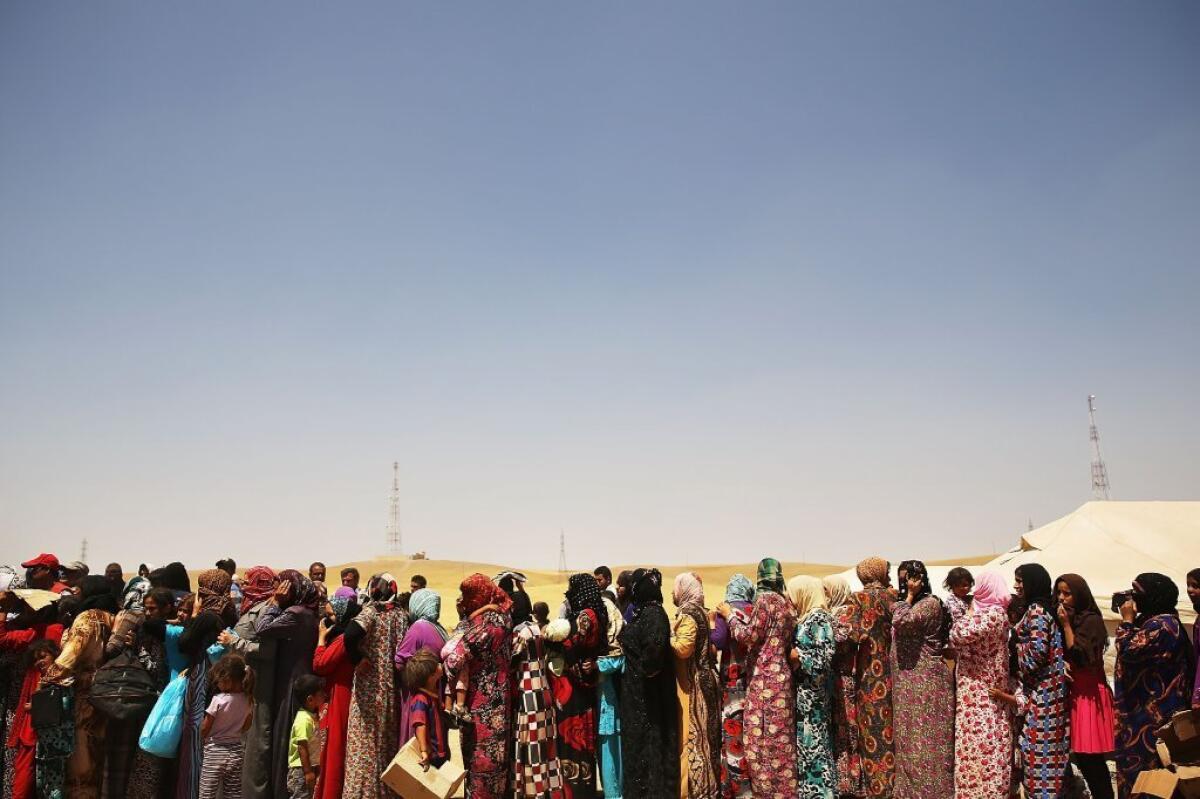Opinion: Female genital mutilation story debunked, but are Iraqi women really safe?

- Share via
The story was a grabber: Islamic State, the fundamentalist Al Qaeda breakway group formerly known as ISIS, was planning the genital mutilation of as many as 4 million Iraqi women and girls.
The BBC and other news agencies quoted the U.N.’s humanitarian coordinator for Iraq, Jacqueline Badcock, who, in a videolink interview, called it a “fatwa” and said it was “of grave concern.”
The Kurdish news agency BasNews quoted Ahmed Obaydi, identified as a Mosul police spokesman, as saying that the call to enforce a practice of cutting off women’s external genitalia, including the clitoris, was a “ ‘gift’ for the people of Mosul” to “prevent immorality and promote Islamic attitudes among Muslims.”
But almost as quickly as the story was reported, Islamic State issued denials, and news reporters on the ground in Iraq checked out the rumor and knocked it down. That’s how reporting is supposed to work. The British newspaper the Guardian said plans for a statement from a U.K. official on the matter were scuttled after questions were raised about the reports, and said the supposed fatwa was described as photoshopped and dating to 2013.
Islamic State appeared anxious to deny that it had planned any such thing. Maybe the very large and very swift backlash took its leaders aback, although Islamic State’s scruples about bad PR, much less cruelty, seem like they could be measured out in coffee spoons.
In that backlash there is some hope. In decades past, female genital mutilation, or FGM, wasn’t a topic for discussion. Enough people now know what FGM is, they don’t like it and they are no longer willing to give it a pass as a cultural practice or even to call it by that meek and inaccurate euphemism, “female circumcision.”
Even in regions where it’s been practiced for generations, it can be phased out. I’ve heard Molly Melching, with the Africa-based empowerment, health and human rights group Tostan, talk about her organization’s success using a “respectful and inclusive” approach in several African countries. The group has helped more than 7,000 communities renounce the practice of genital cutting, not least because it is a health hazard for women and their children.
Any social or political movement that makes free with words like “freedom” or “liberation” but makes an exception for women’s freedom and liberation with controlling practices like FGM betrays the movement’s tyrannical reality.
The Islamic State may not be about to inflict FGM on Iraq’s women right now, but don’t think it’s changed its spots with its denials. Here’s a news report from Iraq that the group hasn’t denied: The Guardian quotes an Islamic State statement warning women in Mosul that they’ll be punished if they don’t cover themselves completely:
“The conditions imposed on her clothes and grooming was only to end the pretext of debauchery resulting from grooming and overdressing. This is not a restriction on her freedom but to prevent her from falling into humiliation and vulgarity or to be a theater for the eyes of those who are looking.”
The technical term for that is “hooey.”
Follow Patt Morrison on Twitter @pattmlatimes
More to Read
Sign up for Essential California
The most important California stories and recommendations in your inbox every morning.
You may occasionally receive promotional content from the Los Angeles Times.














